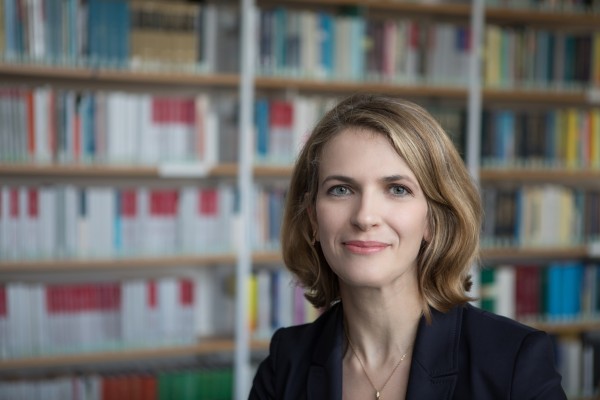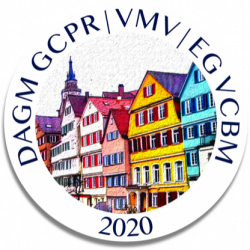Panel: Immersive Analytics
Immersive Analytics is still an actively researched topic that provides challenges for many disciplines such as visualization, human-computer interaction, and cognitive science. Especially due to the increasing availability of head-mounted displays for virtual/augmented/mixed reality, these technologies are increasingly used for data analysis (especially for biomedical visualization). In this panel, exerienced researchers in this field will discuss their view on the utility, applicability, and limitations of immersive technologies for data visualization and the potential for future research.
Wednesday, September 30, 2020; 11:00 – 12:30
Session Chair / Moderator: Michael Sedlmair (University of Stuttgart, Germany)
Panelists

Marc Baaden
CNRS UPR 9080 laboratory, Paris, France
Dr. Marc Baaden is a computational chemist who works on modeling biological systems and processes at the molecular and atomic level. Work includes both application of existing packages like Amber, Gromacs, Yasara and NAMD but also development of novel software and exploration of innovative methods (like for example virtual reality and haptics). A broad range of methods is used from simple minimization via coarse grained modeling up to molecular dynamics and docking approaches. In addition, he develops molecular visualization applications such as HyperBalls and UnityMol. A recent orientation concerns the FAIR sharing of such data and experiences. He is actively collaborating with experimental groups, linking and validating computational observations with data from crystallography, NMR spectroscopy and electrophysiology. Marc is Directeur de Recherche de 1ère classe and Director of the CNRS UPR 9080 laboratory, Paris.

Tobias Günther
Friedrich-Alexander University Erlangen-Nürnberg, Germany
Tobias Günther is a professor for Visual Computing at the Friederich-Alexander-University Erlangen-Nürnberg, Germany. His research concentrates on the development of novel algorithms and techniques for large-scale exploration of scientific data, optimization-based feature extraction, applications of machine learning, and rendering both in real-time and offline. He collaborates with domain scientists from various disciplines, including meteorology, climate science, biology, cosmology, architecture, sports, and engineering. He received his PhD from University of Magdeburg and was a postdoc at ETH Zurich.

Enkelejda Kasneci
Eberhard Karls University of Tübingen, Germany
Enkelejda Kasneci is a Professor of Computer Science at the University of Tübingen, Germany, where she leads the Human-Computer Interaction Lab. As a BOSCH scholar, she received her M.Sc. degree in Computer Science from the University of Stuttgart in 2007. In 2013, she received her PhD in Computer Science from the University of Tübingen. For her PhD research, she was awarded the research prize of the Federation Südwestmetall in 2014. From 2013 to 2015, she was a postdoctoral researcher and a Margarete-von-Wrangell Fellow at the University of Tübingen. Her research evolves around the application of machine learning for intelligent and perceptual human-computer interaction. She served as academic editor for PlosOne and as a TPC member and reviewer for several major conferences and journals.

Torsten W. Kuhlen
RWTH Aachen University, Germany
Torsten Wolfgang Kuhlen is a professor and the head of the Virtual Reality & Immersive Visualization Group at RWTH Aachen University, Germany. His research interests include all areas of Virtual Reality with a focus on immersive data analysis in scientific and technical applications, the design and evaluation of 3D, multimodal human computer interfaces, and advanced navigation techniques in large virtual environments. In his career, Torsten has acquired and carried out numerous, mostly application-driven and interdisciplinary research projects. Application domains comprise, among others, production technology, simulation science, medicine, and neuroscience. In Aachen, he operates the aixCAVE, one of the largest VR installations worldwide. He has co-authored more than 250 peer-reviewed research papers and served as program chair, program committee member, and general chair for various renowned international conferences on Virtual Reality, Computer Graphics and Visualization.

Falk Schreiber
University of Konstanz, Germany
Falk Schreiber holds the chair for Life Science Informatics at the University of Konstanz, Germany. He is a computer scientist who has worked in bioinformatics and computational systems biology since more than 20 years at different places in Australia and Germany. His research focuses on analysing structure and dynamics of biological networks, modelling of biological processes, as well as interactive visualisation and immersive analytics of life science data. He and his team develop novel computational techniques and algorithms, and work in close collaboration with scientists from the life sciences to solve problems in a broad range from molecular biology to collective behaviour. Falk Schreiber holds an Adjunct Position at Monash University, Melbourne.

